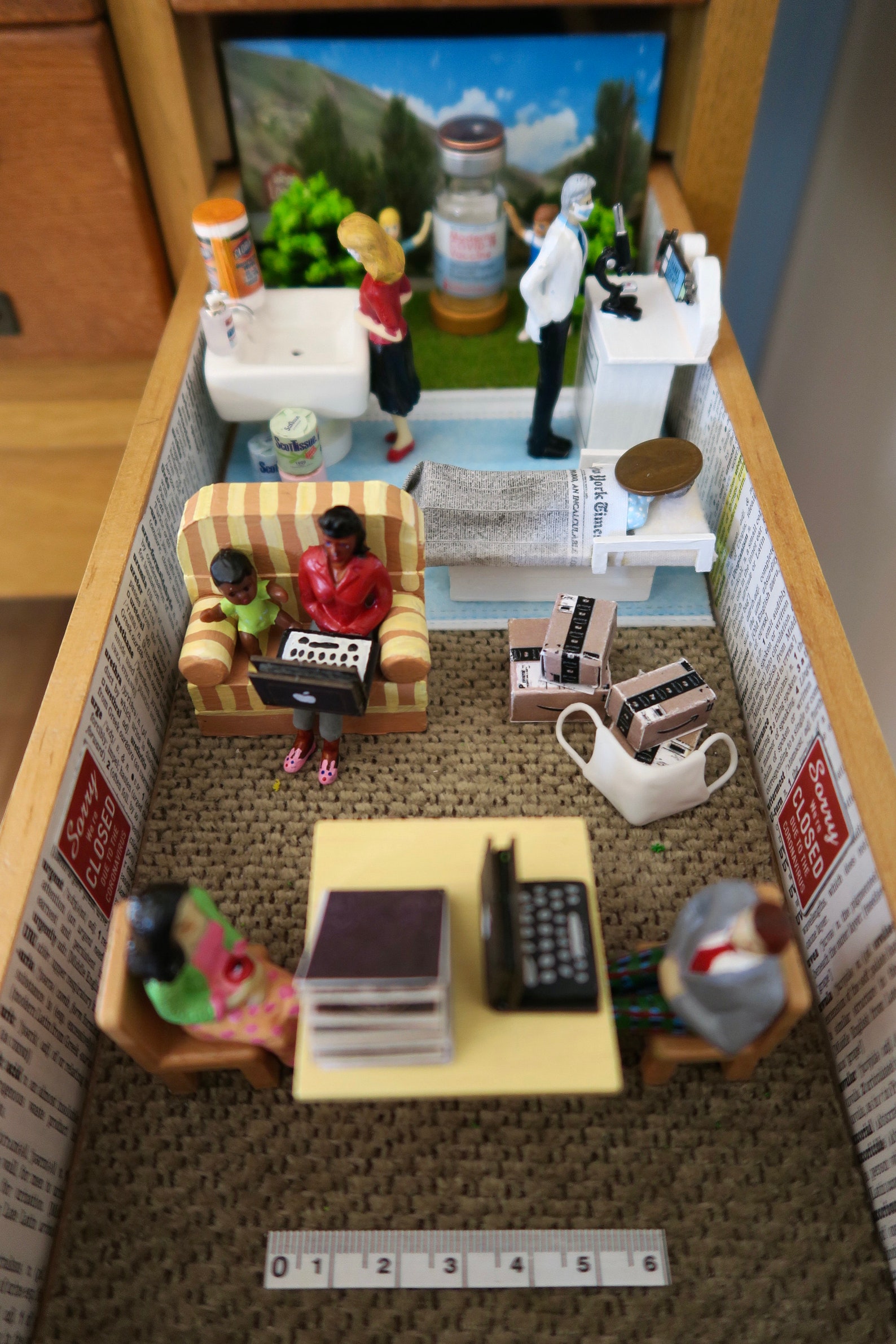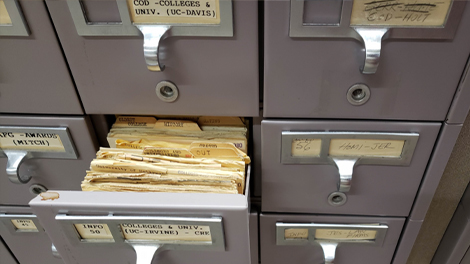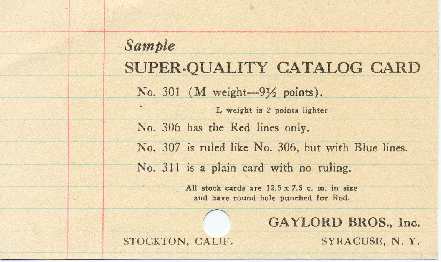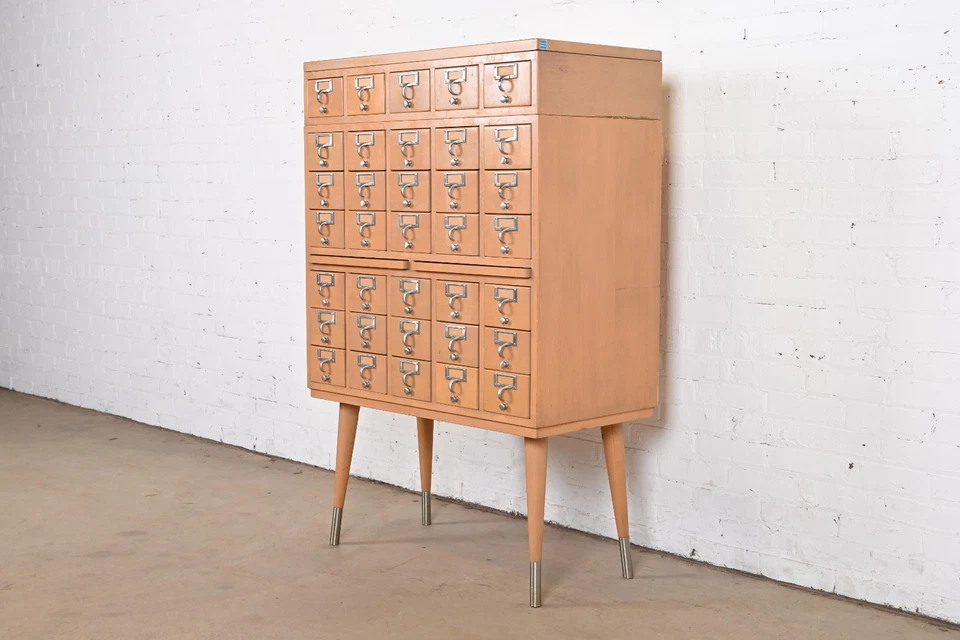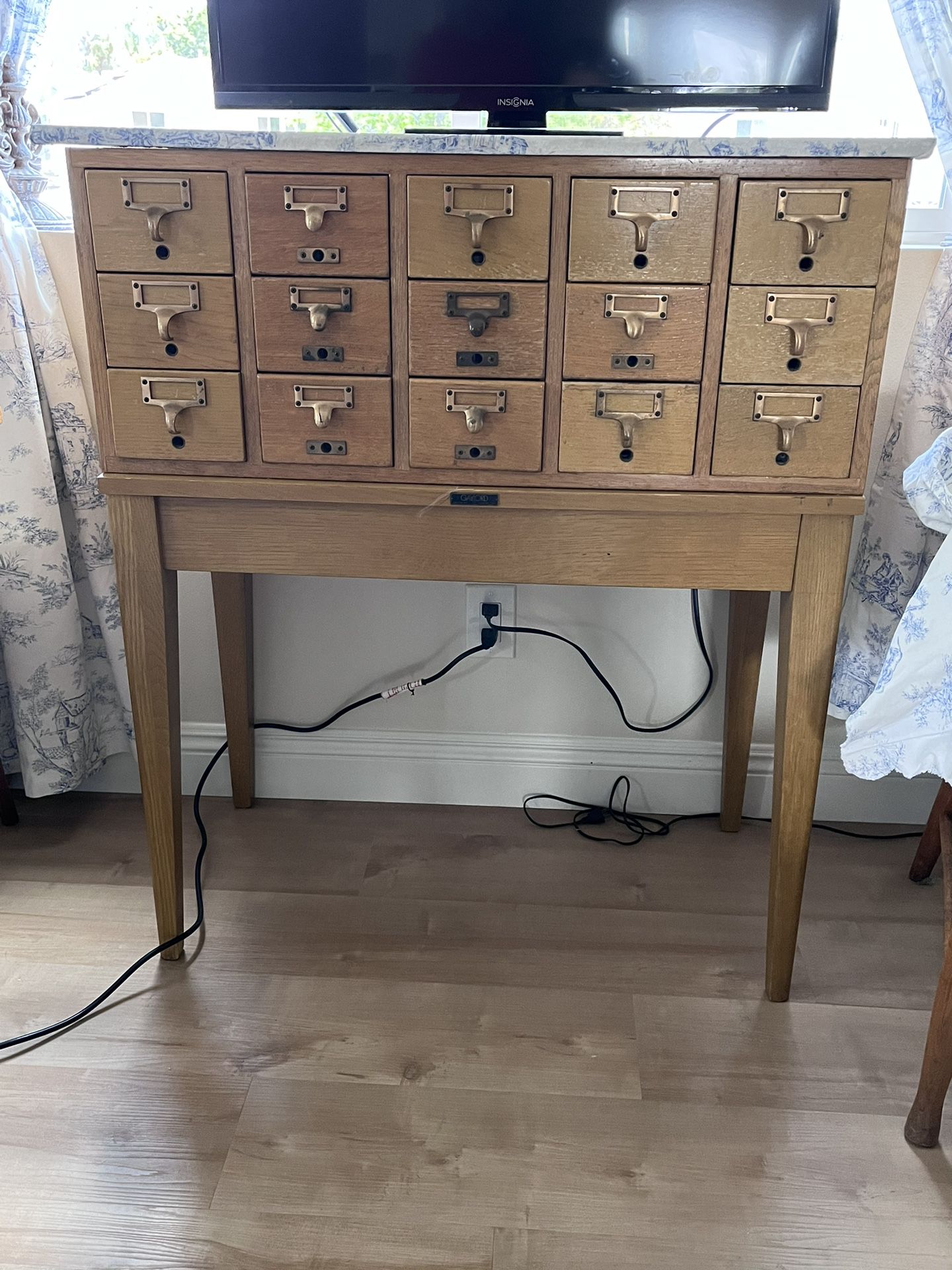Market analysis of library card catalogs in 2023.
As card catalogs lost their functionality in libraries and were de-acquisitioned there was a wave of nostalgia which caused people to purchase them, often in auctions, at higher than expected prices. Once they had them, most of these purchasers realized that they didn't have functional uses in their homes for them (beyond wine or liquor bottle storage, small crafts, or use as a zettelkasten, which seem to be the only reasonable upcycling use cases I've seen and the last seems to be very rare and niche). They sit and take up space for very little value in return beyond some esthetic beauty and nostalgia. As a result many soured on their ownership. Most owners naturally want to recoup their original purchase price thinking that relative rarity will save them.
Combined with this there was a resurgence in mid-century design esthetic which had some furniture restorers and designers buying and doing full (and very pretty) expensive restorations of older 20s - 40s versions which sold at auctions for $4,500 and up. Given the rarity of some of these older, fine furniture versions along with the work in restoration and the limited market only those who had a tinge of nostalgia and money to burn made purchases which resulted in a limited number of actual sales.
These two factors mean that almost all of the listings for library card catalogs are heavily overvalued on eBay, Facebook Marketplace, Craig's List, Etsy, etc. The fine furniture restorations have set an artificially high price point which some feel theirs must match as well. The difference in quality however is stark. Because of their size and lack of functionality, there is a relative glut of them on the market which all bear inflated prices. Those who originally spent inordinate amounts for them, feel they will still have that same value to others, so they list them online for inflated prices.
I've been closely watching the online "market" for them for over a year and see the same several dozen or more listed across the country usually in the range of about $30-$60 per drawer. Many are listed as local pick up only, which further hampers the overall market. This also brings up the issue of shipping a 60 drawer card catalog which can easily run in the $800-$1,500+ range which usually requires additional shipping logistics involved with freight. Most catalogs are already overpriced, but adding an additional $1000 tax on top is a bridge too far for all but the highest end of the market. Some platforms like Etsy and eBay which take cuts of the final sale also add to the cost of the sale.
In the year and a half or more that I've been watching, I've only seen a handful of actual sales, all of which were local, and many of which were in the Los Angeles area. All of these sales have been for listings which eventually were reduced down to the $15 per drawer range. One local sale was in Wisconsin was for $10 per drawer (a 30 drawer file) and another in Los Angeles was for $12.50 per drawer (on a 20 drawer file).
A note on condition
Outside of a small handful of fine furniture listings in the $4,000+ range, most ex-Library card catalogs are generally very well worn and not in great condition which makes them less valuable as decoration pieces. In fact, many are often missing their original card catalog rods, have dents, dings, or other cosmetic issues. Some are missing drawers or have replacement drawers which don't match. Some may be slightly mismatched having been purchased in different eras as modular pieces and put together. Frequently they have been modified from their original states to include inserts or other material to fill in the holes which where almost standard in the bottoms of the drawers.
Advice
If you're in the market, know that it is tremendously inflated, a fact which most sellers are aware of as they've got them listed, some for many years, not resulting in actual sales. If you really want one and find it in a reasonable condition, I highly recommend making an offer for it at about $10 per drawer and potentially go up to $15. Anything higher than that is overpaying based on actual recent market conditions. If you have the money to burn, feel free, but keep in mind that like many others in the past, once the initial nostalgia has passed, you've probably got a large piece of relatively non-functional furniture in your home.
It's not common, but some government auction sites will list card catalogs for auction from time to time. Because they actively want to sell them these can be purchased in the $2-10 per drawer range or less. Often they tend toward the larger 60+ drawer range, aren't in good condition, or need to be picked up and shipped to your final destination, usually within a few days of purchase as the original owners don't or explicitly won't handle shipping. These are likely to need some restoration work to be decorative pieces in many homes.
If you want something brand new, you can check out Brodart, which is the only remaining card catalog manufacturer/sales firm I'm aware of in the United States. Their systems are modular, so you can pick and choose what you'd like to have. The only caveat is that they start at $1,700 for their smallest 9 drawer model and can go up to $11,648 (plus shipping) for a full 60 drawer model. The other potential drawback, for some, is that they are made of a mixture of wood, metal and plastic versus the all wood and metal fittings of older vintage models.
If you're in the market primarily for nostalgic reasons, then you might also consider looking at some of the older desktop wooden card catalogs which are often much less expensive, take up far less space, and can be wonderfully decorative. Some of the smaller two to six drawer desktop models have the benefit of potentially serving as recipe boxes or paper rolodexes, zettelkasten, or simply small office storage. Here again, the online markets are likely to be heavily overpriced with 2 drawer models being continually listed at $150 and 4 drawer models in the $250-400 range. These sellers know that these prices don't result in actual sales as they've been sitting on them for long periods of time (presumably hoping to get lucky). Here I'd recommend you make offers in the $20-30 per drawer range to see what you can find. Another benefit is that these smaller models are far cheaper to ship across the country. For additional advice on these, see: The Ultimate Guide to Zettelkasten Index Card Storage.

